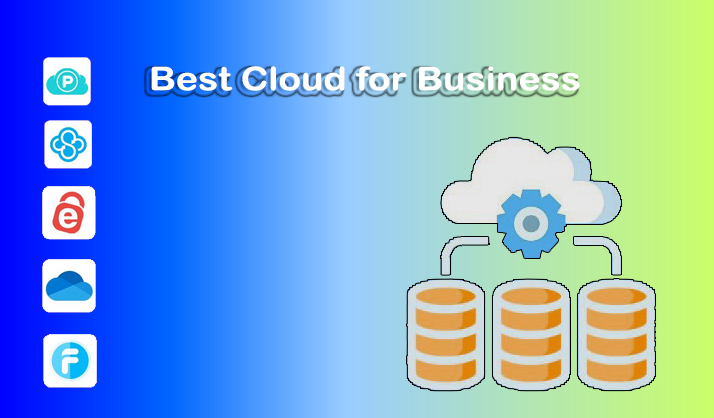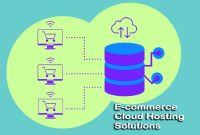Best Cloud for Business: Choosing the Optimal Cloud Solution for Your Company
In the digital era, cloud computing has transformed how businesses operate, offering flexibility, scalability, and cost-efficiency. Selecting the best cloud solution for your business is crucial for maximizing these benefits. This article will guide you through the process of choosing the right cloud service, compare leading providers, and explore the advantages of cloud computing.
Understanding Cloud Computing
Cloud computing enables businesses to access and store data and applications over the internet rather than on physical hardware. There are three main types of cloud services:
- Infrastructure as a Service (IaaS): Provides virtualized computing resources over the internet.
- Platform as a Service (PaaS): Offers hardware and software tools over the internet.
- Software as a Service (SaaS): Delivers software applications over the internet.
Identifying your business requirements and objectives is essential to determine which type of cloud service suits you best.
Key Considerations for Choosing a Cloud Service
When selecting a cloud service for your business, consider the following factors:
- Security: Ensure the cloud provider offers strong security measures, including data encryption, compliance with industry standards, and regular security audits.
- Scalability: Choose a cloud solution that can grow with your business. Scalability is essential for handling increased workloads and expanding operations.
- Cost: Analyze the cost structure of different cloud services. Some providers offer pay-as-you-go models, which can be more cost-effective for small and medium-sized businesses.
- Performance: Evaluate the performance and reliability of the cloud provider. Look for services with high uptime guarantees and fast data processing capabilities.
- Support: Opt for a cloud provider that offers comprehensive customer support, including 24/7 assistance and a variety of support channels.
Comparing Leading Cloud Providers
Several cloud providers dominate the market, each with its strengths and weaknesses. Here’s a comparison of some of the top cloud services:
- Amazon Web Services (AWS)AWS is a leading cloud service provider, known for its extensive range of services and global presence. It offers robust security, scalability, and performance. AWS is suitable for businesses of all sizes, from startups to large enterprises.Pros:
- Wide range of services
- Excellent scalability
- Strong security features
- Complex pricing structure
- Steeper learning curve for beginners
- Microsoft AzureAzure is a popular choice for businesses already using Microsoft products. It offers seamless integration with other Microsoft services and provides a comprehensive suite of cloud solutions.Pros:
- Seamless integration with Microsoft products
- Strong support and documentation
- Competitive pricing
- Limited third-party integrations compared to AWS
- Occasional performance issues
- Google Cloud Platform (GCP)GCP is known for its data analytics and machine learning capabilities. It offers a user-friendly interface and competitive pricing, making it a great option for businesses focusing on data-driven applications.Pros:
- Excellent data analytics tools
- User-friendly interface
- Competitive pricing
- Smaller service portfolio compared to AWS and Azure
- Limited global presence
- IBM CloudIBM Cloud is known for its enterprise-grade solutions and hybrid cloud capabilities. It is a strong contender for businesses looking for robust security and compliance features.Pros:
- Strong security and compliance
- Excellent hybrid cloud capabilities
- Enterprise-grade solutions
- Higher cost for small businesses
- Limited third-party integrations
- Oracle CloudOracle Cloud is designed for businesses that require high-performance computing and extensive database management. It offers a range of cloud services tailored for enterprise needs.Pros:
- High-performance computing
- Excellent database management
- Strong security features
- Higher cost
- Complex setup process
Benefits of Cloud Computing for Businesses
Adopting cloud computing can bring numerous benefits to your business, including:
- Cost Savings: Reduce hardware and maintenance costs by leveraging cloud infrastructure. Pay-as-you-go models allow you to pay only for what you use.
- Scalability: Easily scale your resources up or down based on demand. This flexibility is crucial for handling varying workloads and business growth.
- Accessibility: Access your data and applications from anywhere with an internet connection. This enhances collaboration and productivity, especially for remote teams.
- Security: Benefit from advanced security measures implemented by cloud providers. This includes data encryption, regular security updates, and compliance with industry standards.
- Disaster Recovery: Ensure business continuity with robust disaster recovery solutions. Cloud providers offer backup and recovery options to protect your data.
- Innovation: Stay ahead of the competition by leveraging the latest technologies and innovations offered by cloud providers. This includes AI, machine learning, and data analytics.
Case Studies: Successful Cloud Adoption
- Netflix: Netflix uses AWS to manage its global streaming service. The scalability and performance of AWS enable Netflix to handle massive amounts of data and deliver a seamless viewing experience to millions of users worldwide.
- Spotify: Spotify relies on Google Cloud Platform for its data analytics and machine learning capabilities. GCP helps Spotify analyze user data to deliver personalized music recommendations and improve user experience.
- Coca-Cola: Coca-Cola uses Microsoft Azure for its global IT infrastructure. Azure’s integration with other Microsoft products and strong support services help Coca-Cola streamline its operations and enhance productivity.
Conclusion
Choosing the best cloud solution for your business is a critical decision that can significantly impact your efficiency, scalability, and overall success. By considering factors such as security, scalability, cost, performance, and support, you can find a cloud provider that aligns with your business needs. Comparing leading providers like AWS, Microsoft Azure, Google Cloud Platform, IBM Cloud, and Oracle Cloud can help you make an informed decision.
Embracing cloud computing offers numerous benefits, including cost savings, scalability, accessibility, security, disaster recovery, and innovation. By adopting the right cloud solution, your business can stay competitive in today’s fast-paced digital landscape and achieve long-term success.




